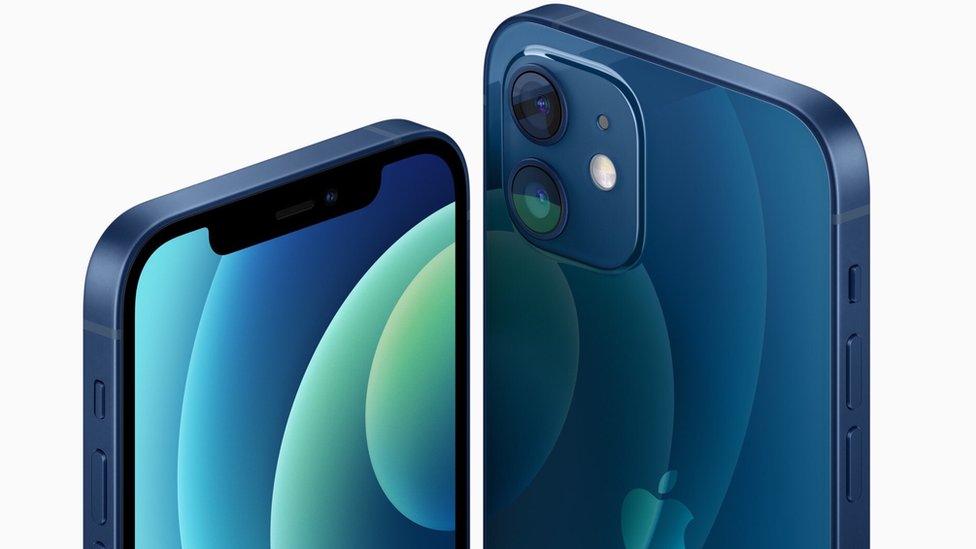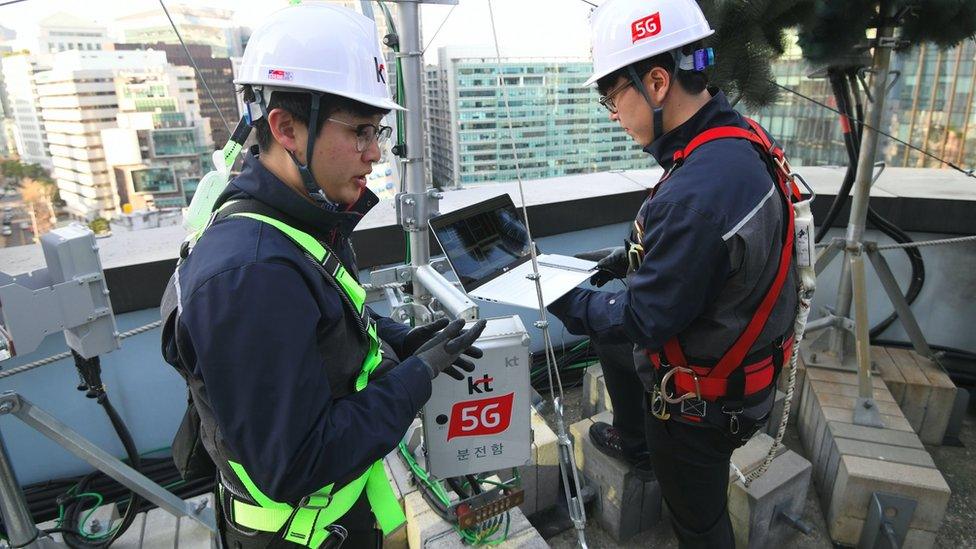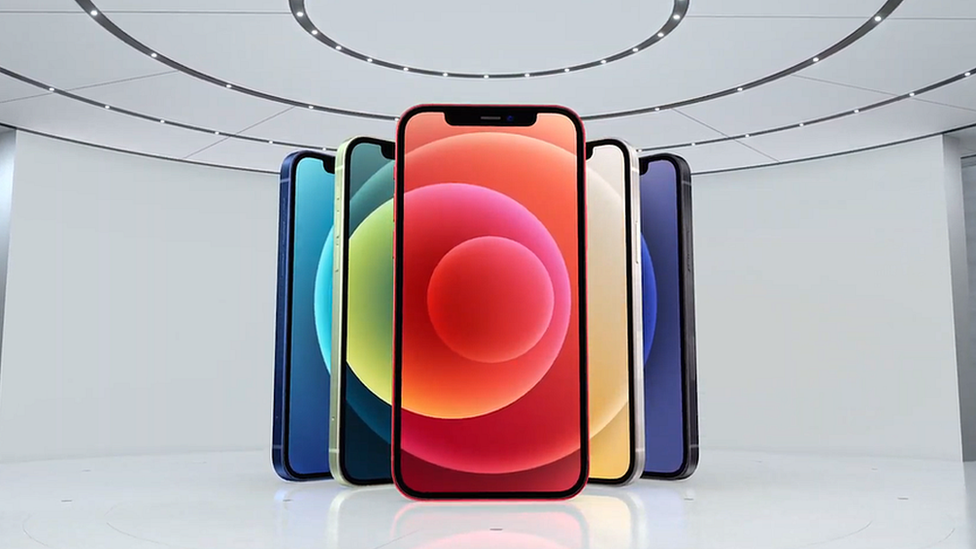Tech Tent: Who needs 5G?
- Published

Apple’s new 5G-capable iPhone 12
The annual September iPhone launch is always a major event - after all, this is the most profitable product in history.
But in recent years, excitement levels have dropped, as each new version looked much like the last.
And this year the challenge was even greater, with a virtual event - without the whooping crowds - coming a month late, because of the effects of the pandemic.
But that made Apple’s chief executive, Tim Cook, even more determined to convince his online audience that they should be excited about 5G. He promised them a whole new world: “Higher quality video streaming, more responsive gaming, real time interactivity and so much more!”


The iPhone is late to the 5G party - its biggest rival, Samsung, launched its first 5G Galaxy 18 months ago. But that may not matter. Apple tends to wait until it thinks a technology is ready for the mass market - and its arrival on the scene may spur mobile operators to speed up the rollout of, what are still, very patchy networks.
New research from OpenSignal, which collects data from mobile users via a speed test app, shows just how early in the rollout of 5G we are - and how variable an experience customers are receiving.
Its report shows, external that, in Saudi Arabia and South Korea, 5G customers are getting average download speeds of over 300Mbps - many times higher than what is available on their 4G networks. In the United States, by contrast, the average 5G download is just 52Mbps, less than twice what is on offer via 4G.
That reflects the fact that US operators have, so far, mainly focused on using the kind of 5G spectrum that gives wide availability, rather than the highest speeds.
At the iPhone event, Verizon promoted its ultra high-speed mm-wave service, which OpenSignal says delivers average speeds of nearly 500Mbps.
But Marta Pinto, mobile device specialist at the research firm IDC, tells Tech Tent that it is in China that Apple really needs a 5G offering to compete: ”It's important because you have other vendors there that already have a 5G device. It's a ‘too big to fail’ market. You have Huawei playing there, you have Xiaomi playing there, and you have the advantage of Samsung not having a big market share in China.”

Engineers check a 5G mast in Seoul, South Korea, where the technology has been available for 18 months
South Korea, always at the cutting edge of mobile innovation, started commercial 5G services in April last year. Professor Jasper Kim, who spends his time shuttling between Seoul and California, says Koreans have rushed to embrace it.
“If there's something new, there's something better - if there's something that everyone else has, then people rapidly converge towards it. And I think 5G's that thing," he explains.
He thinks that better online shopping and mobile video are the main 5G uses: “95.5% of South Koreans use their phones for video. And although - yes - you can already get video, it'll be much faster to download that movie, download that song by BTS.”
But we also hear from Ghana, where there is less excitement about 5G. Kenneth Adu-Amanfoh, from the Africa Cybersecurity and Digital Rights Organisation, tells us that’s because only two of the country’s four mobile operators have even moved to 4G.
He blames what he says is a problem in many African countries - the high cost of spectrum, and excessive regulation.
“You see, most regulators within the African region are just focusing on how much revenue they can get from the operators, but not how to reform their policies and regulations to promote the 4G migration," he says.
Mind you, not everyone is convinced that we should be rushing ahead with 5G. Professor William Webb, a wireless technology consultant, says the technology is overhyped.
He does not believe the telecoms industry has made a compelling case for why consumers need it: “If you look at many of the applications that are talked about, like virtual reality, they would actually probably be done indoors and over Wi-Fi, which does have indeed very good speeds and very low latency, better in fact, than most 5G deployments so far.”
Internet of Things
We are often told that the real point of 5G is about connecting things, rather than people, to the internet. But Professor Webb says the ‘internet of things’ has also failed to live up to the hype - in 2010 it was forecast that 50 billion devices would be connected to the internet, but today the actual figure is 10 billion.
He does, however, accept that this technology is coming - and soon just about every new phone will be 5G-ready, whether we want it or not.
“It's a bit like 4K TV, even if you didn't want it, it's going to be there and you can't fail to buy it when you buy a television these days.”
5G may turn out to be an evolution, rather than a revolution. But both the mobile industry and governments around the world have decided that it is vital to our prosperity and security, so you can expect to hear plenty more about it over the coming years.
- Published13 October 2020

